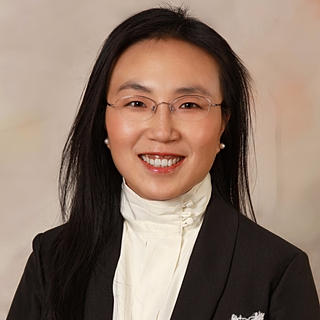Thoughts of a Liturgical Musician
- Lei Yu
- Nov 10, 2018
- 4 min read
As part of the Worcester Chapter of the NPM educational offerings, I held a mini master-class on organ for pianists today. Several things kept ringing in my head after the session had ended.
1. Get involved with your worship community.

The student asked me, after struggling for words, "how do you stay in a job for so long?" It took her several attempts to explain the question, and my answer was not what she expected. "You surprise me," she said, "I thought you'd say, start a choir, do a concert series, or something like that... but 'get involved with the community'? Why, what does that give you?" "Trust." I answered. The frown between her eye brows suddenly un-knotted itself, and a look of relief came over her face. I thought I even saw a smile.
We often forget that while beauty itself has transformative powers (especially true beauty through Christ), the process of forming and delivering that beauty depends, largely, on human beings who carry different burdens to focus on the same goal – which requires, on a deep level, a kind of trust, that allows us to render our souls to each other through our voices. It is only through this trust, that we could freely offer ourselves, without fear of failure and judgement.
In a high-level musical organization, such trust is build through music making – the conductor must be a master of his / her own art, thus earn the musical trust of the ensemble members. However, in a local parish, where our music ministry is consisted mainly of volunteers, this trust is not simply a musical trust, but a social trust. We hosted many feasts in our house for the music ministry volunteers as well as adding mini lectio divina elements to each of our choral rehearsals. Our choir grew in numbers, spirituality, and social connections.
Get involved with your worship community!
2. We are but an instrument of God, no more.
A student played "the Prayer of St. Frances" during the class, and while playing, she sang. I jokingly pointed out that her singing of the text was more like military march than that of a prayer. She said, "I consider myself a spiritual warrior", with much pride. "Would you pray through the text when you sing this time?" I asked, and she did. "Wow," She said, "this is the first time I felt like I actually sang something. I was so afraid that no one is going to notice the beat..."

As musicians, we have a strong desire to make things happen – the beat needs to be consistent, and the rhythm correct; the musical phrasing need to go here; the vowels need to be formed like that... Through this process, we often forget that we are to deliver a message – as the musical notation is a vehicle for the prayers, we are but an instrument of God, delivering His Grace. Of course there are times that we need to be warriors, but then there are times we are called to be like St. Frances – we are called to be, and to let God be, through us.
I recall the beginning of one of my ministries, the church secretary as well as many parishioners had difficulties with my race, gender, and age. I often heard snippets of doubts, "we never had anyone that's..." "you are just a young thing, what would you know..." I just smiled, and stayed out of her way. Summer came, and the roses in our garden bloomed. I brought her a fresh rose every week, everyone always commented on how fragrant the rose is and how beautiful it looked on her desk. She became my fierce defender after that summer, and found many creative solutions for "inconveniences" that the music ministry caused.
When comes to delivering beauty and truth, we are but an instrument of God, no more.
3. Partner with other ministries and capture young people's imagination.

"I want to start a choir, but I am not sure if people would come." A participant said. "How about start a seasonal choir first, then expand to the entire Festival part of the liturgical year." "What about kids choir, I have never been to a Catholic church that had a kids choir. People just don't want to hear kids in the Catholic Church." "Well," I answered, "a children's choir actually is a great idea. But it does take much more work than that of adults. And you need to be a creative person with loads of energy yet sincere and nurturing."
I once worked in a parish that when I started, there were only 4 people left in the choir, and the average age was 65. But I saw many children come to church on Sundays, so I advertised for a children's choir. I had 8 children at the beginning, and we expanded into over 40 three years later. I partnered with the catechetical ministries and developed curriculums for my children's choir that follows the lectionary, and feeds into their CCD learnings. We hosted summer choir camps, went to choir picnics, sang at nursing homes and offered our songs at parish Sunday liturgies as well as parishioners funerals...
The parishioners appreciated the children and even looked forward to the Sundays when the children would sing. And many of these children kept singing as young adults. I cannot tell you how much their understanding of the Word had enlightened me; and I cannot tell you how many times their parents have told me about the enrichment that music had brought into their faith lives.
Capture young people's imagination and partner with other ministries, let beauty become part of their vocabulary.



Comentários